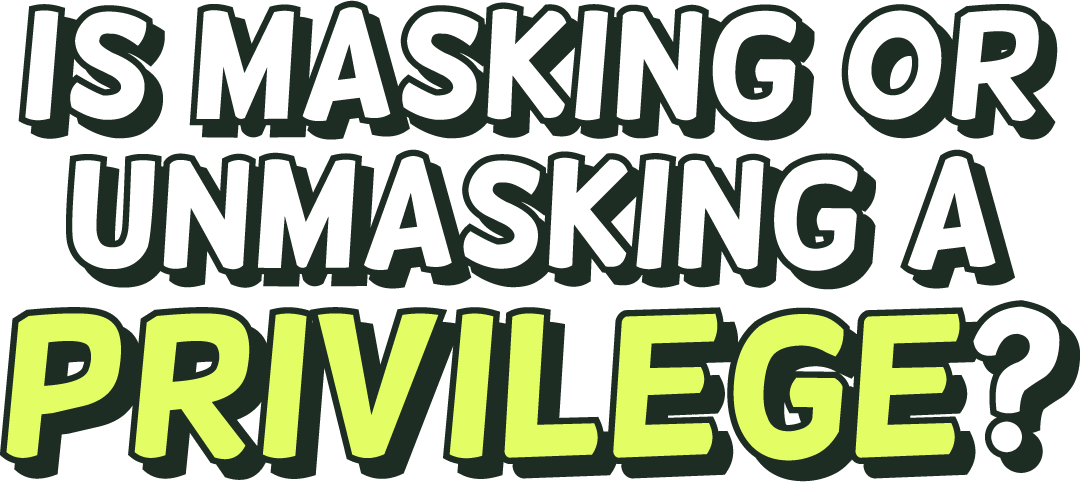While I’m technically an Autistic person with low support needs, it’s impossible for me to completely pass as neurotypical or non-disabled.
I have a speech impediment. Sometimes I need my mom or a friend to speak on my behalf (on phone calls, at medical appointments, etc.).
People tend to make assumptions about me solely based on the way I speak. They see me as “low-functioning”. They infantilise me. They underestimate my capabilities. They ask my parents to make decisions for me. I’ve had job opportunities denied to me.
Because of this, I could never fully relate to many low support needs Autistics I see online. I can empathise with higher support needs Autistics and the discrimination they face, even if I may not technically be one of them.
To me, the ability to mask is a privilege. Because masking gives you access to opportunities (jobs, dating, etc.) you otherwise wouldn’t get if you’re unable to mask.
But I understand that unmasking can also be a privilege. Because unmasking requires a level of safety and security that many multiply marginalised individuals don’t have, especially if they’re BIPOC.
Ultimately, we need to work towards a world where competence is always presumed and no one is held to neuronormative and other oppressive standards, so that nobody feels the need to mask.
